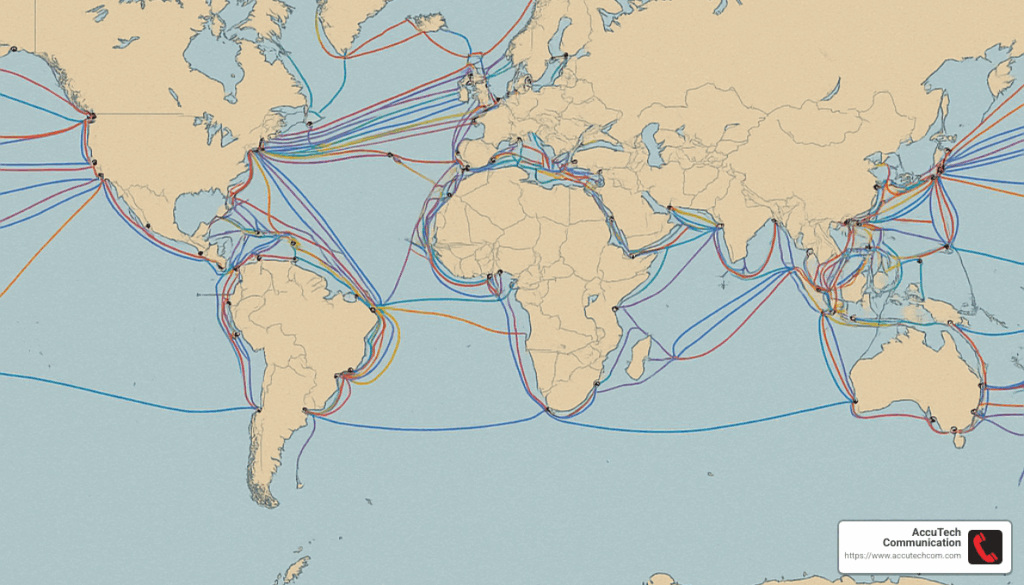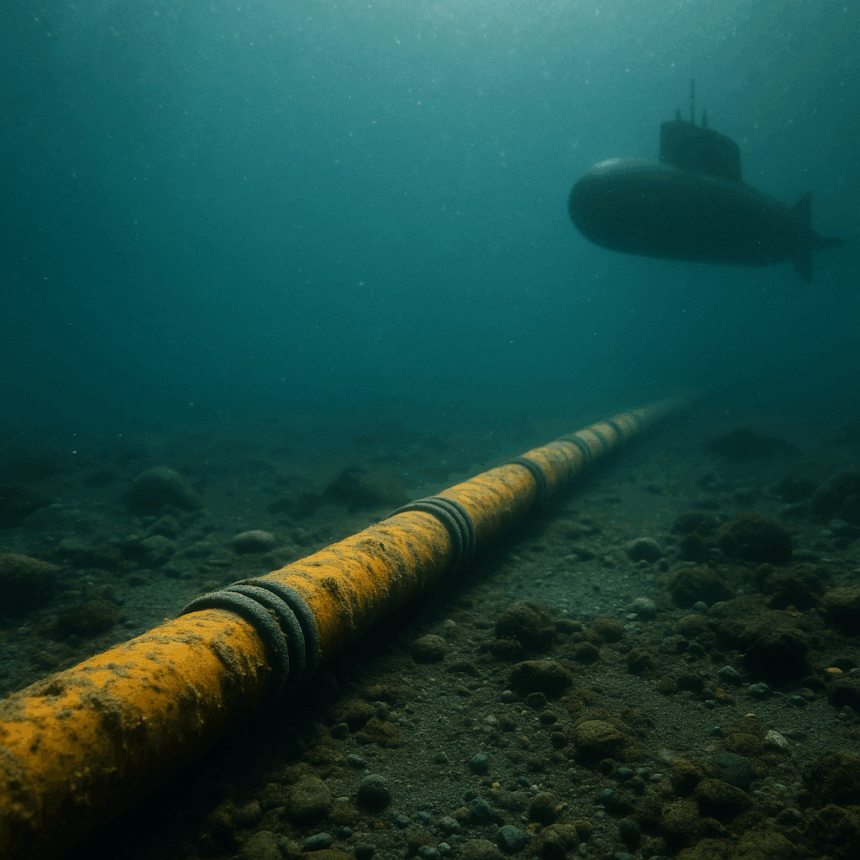The global internet relies heavily on undersea fibre optic cables. These cables carry approximately 99% of the world’s international data traffic, connecting continents and powering our digital lives. Recently, concerns have surged about the growing risk of attacks targeting these vital cables. Incidents in the Baltic Sea and around Taiwan suggest increased threats backed by Russia and China. As tensions escalate, governments and security experts are concerned about the potential for disruptions that affect global communication, commerce, and national security.
What’s Happening & Why This Matters
Rising Risks of Undersea Cable Attacks
Undersea cables have become a strategic target for state-backed actors. A detailed report by Recorded Future, a U.S. cybersecurity firm, identifies a series of incidents over the past 18 months that point to malicious activity rather than simple accidents. Nine events in the Baltic Sea and near Taiwan suggest that Russia and China are actively targeting these cables. These nations may use undersea cable disruptions as a form of low-tech warfare that can appear accidental.
The report cites examples such as a Chinese ship allegedly dragging its anchor and severing cables between Lithuania and Sweden in November 2024. In another case, a Chinese-crewed freighter caused damage near Taiwan by repeatedly moving over submarine cables in a zigzag pattern. Such actions may cause severe internet outages, affecting millions.
Although many cable damages occur due to accidents or natural causes, the recent pattern of incidents and their locations raises suspicions of deliberate sabotage aligned with geopolitical aims. Russia’s operations in the North Atlantic-Baltic region and China’s activities in the Western Pacific are increasing risks to communication infrastructure amid rising tensions.

U.S. Moves to Ban Chinese Technology on Undersea Cables
The U.S. Federal Communications Commission (FCC) has proposed new measures to protect undersea cable networks connected to the United States. FCC Chair Brendan Carr introduced rules to ban Chinese companies and technology from owning or operating parts of these cables. The proposal also limits capacity leasing agreements and bans certain Chinese equipment.

Carr explains the urgent need to guard against foreign adversaries who pose cyber and physical threats to these cables. While details remain unclear on whether existing cables face restrictions, the proposal aims to enhance security by enforcing cybersecurity and physical safeguards.
This proposal follows earlier FCC actions to block Chinese labs from testing electronic devices before U.S. certification, citing national security concerns over potential surveillance, raising the risk of insecure gear entering U.S. markets.
The FCC also plans to encourage the use of American repair and maintenance services, as well as trusted technology providers abroad. The Commission will vote on these measures on 07 August, reinforcing efforts to secure critical infrastructure.
Vulnerabilities and Strategic Importance
Submarine cables are essential for global commerce and communications. Disruptions in areas — including the Red Sea and West Africa — with fewer backup cables or repair resources suffer prolonged outages. The Baltic Sea incidents caused minimal disruption thanks to spare capacity and resilient infrastructure.
However, island EU member states, such as Malta, Cyprus, and Ireland, remain vulnerable due to their heavy reliance on submarine cables for connectivity. The UK has recognized these risks, recommending the Royal Navy play a more active role in securing undersea pipelines, cables, and maritime traffic critical to national life.
The Challenge of Attribution and Prevention
Determining whether cable damages result from sabotage or accidents is difficult. State-backed actors can disguise attacks as accidents, using vessels without obvious links to their governments. This tactic allows plausible deniability while causing widespread disruption.
Recorded Future suggests improving monitoring, implementing security measures, and conducting comprehensive stress tests to prevent multiple cable failures. Enhanced vigilance will be vital to thwarting potential state-sponsored threats that could precede broader conflicts.
TF Summary: What’s Next
The increasing reports of deliberate interference with undersea fibre optic cables call for urgent international cooperation on infrastructure security. Governments must enhance monitoring and tighten controls on vulnerable points. The FCC’s proposed ban on Chinese technology and ownership signals a shift toward securing critical networks from foreign influence.
Investing in repair capabilities, diversifying cable routes, and encouraging trusted technology providers will be essential. The global community should also work toward more precise attribution mechanisms to deter future sabotage. Protecting undersea cables is no longer just about maintaining connectivity — it’s about safeguarding economic stability and national security.


